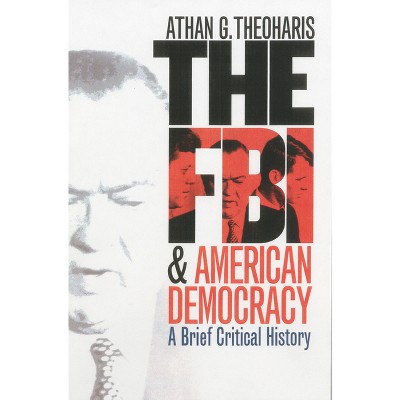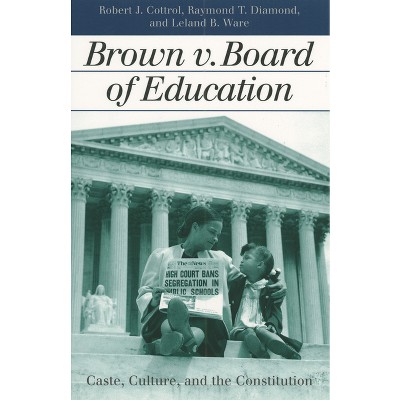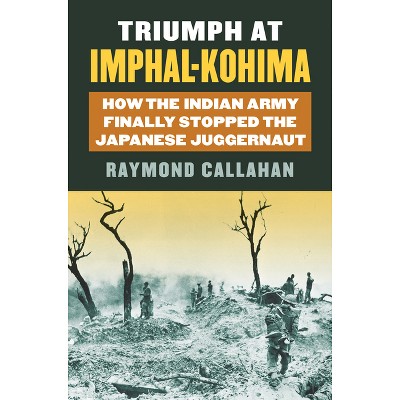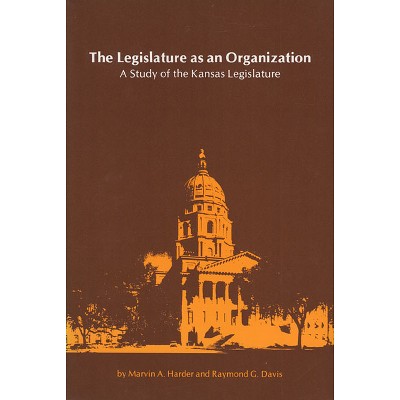The Origins of FBI Counterintelligence - by Raymond J Batvinis (Paperback)

About this item
Highlights
- As the world prepared for war in the 1930s, the United States discovered that it faced the real threat of foreign spies stealing military and industrial secrets-and that it had no established means to combat them.
- Author(s): Raymond J Batvinis
- 344 Pages
- Political Science, Intelligence & Espionage
Description
About the Book
Examines the United States efforts to create and project a strong counterintelligence capability both at home and abroad during the 1930s. Several federal agencies, governmental departments, and military divisions vied for that role before it was eventually handed to the FBI. The author, a former FBI agent, chronicles the evolution, achievements, and failure of that effort.Book Synopsis
As the world prepared for war in the 1930s, the United States discovered that it faced the real threat of foreign spies stealing military and industrial secrets-and that it had no established means to combat them. Into that breach stepped J. Edgar Hoover and the FBI. Although the FBI's expanded role in World War II has been well documented, few have examined the crucial period before Pearl Harbor when the Bureau's powers secretly expanded to face the developing international emergency. Former FBI agent Raymond Batvinis now tells how the Bureau grew from a small law enforcement unit into America's first organized counterespionage and counterintelligence service. Batvinis examines the FBI's emerging new roles during the two decades leading up to America's entry into World War II to show how it cooperated and competed with other federal agencies. He takes readers behind the scenes, as the State Department and Hoover fought fiercely over the control of counterintelligence, and tells how the agency combined its crime-fighting expertise with its new wiretapping authority to spy on foreign agents. Based on newly declassified documents and interviews with former agents, Batvinis's account reconstructs and greatly expands our understanding of the FBI's achievements and failures during this period. Among these were the Bureau's mishandling of the 1938 Rumrich/Griebl spy case, which Hoover slyly used to broaden his agency's powers; its cracking of the Duquesne Espionage Case in 1941, which enabled Hoover to boost public and congressional support to new heights; and its failure to understand the value of Soviet agent Walter Krivitsky, which slowed Bureau efforts to combat Soviet espionage in America. In addition, Batvinis offers a new view of the relationship between the FBI and the military, cites the crucial contributions of British intelligence to the FBI's counterintelligence education, and reveals the agency's ultra-secret role in mining financial records for the Treasury Department. He also reviews the early days of the top-secret Special Intelligence Service, which quietly dispatched FBI agents posing as businessmen to South America to spy on their governments. With an insider's knowledge and a storyteller's skill, Batvinis provides a page-turning history narrative that greatly revises our views of the FBI--and also resonates powerfully with our own post-9/11 world.Review Quotes
"An important contribution to FBI historiography, filling a major gap in the literature. . . . Batvinis describes in detail the origins and refinement of the FBI's counterintelligence mission, its new reliance on intrusive investigative techniques (wiretaps bugs, access to bank and financial transaction records), and liaison relations with the British, Canadian, and U.S. military intelligence agencies."--Historian
"This interesting book traces the development of the FBI's counterintelligence role in the crucible of pre-World War II security concerns."--Secrecy News
"Essential reading for all FBI and espionage buffs. . . ."--Choice
"A richly detailed account of the FBI's response to the world crisis of the 1930s and 1940s that overturns much accepted 'wisdom' about FBI intelligence failures and turf battles. Batvinis stays close to his sources while telling an engrossing story that should become the new standard account of FBI counter-intelligence. A stimulating and fascinating work."--Richard Gid Powers, author of Secrecy and Power: The Life of J. Edgar Hoover
"A strong and compelling book on the FBI's pre-World War II transformation."--Katherine Sibley, author of Red Spies in America: Stolen Secrets and the Dawn of the Cold War
"A pioneering and important book on a little-explored aspect of FBI history."--Athan Theoharis, author of The FBI and American Democracy: A Brief Critical History











